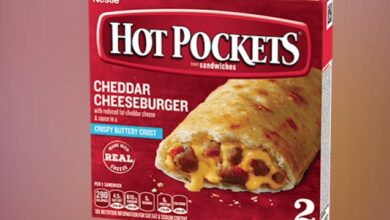Gatorade Zero Nutrition Facts
Gatorade Zero offers a unique blend of hydration and taste without the extra sugar and calories. Dive into this comprehensive exploration to discover how it manages to provide essential electrolytes while catering to health-conscious consumers.
Gatorade Zero, introduced by The Gatorade Company, a subsidiary of PepsiCo, is a popular sports drink designed to provide hydration and electrolyte replenishment without the calories and sugar in regular Gatorade. With zero calories, it is marketed as a healthier alternative to regular sports drinks. This article delves into the detailed nutrition facts of Gatorade Zero, examining its ingredients, health implications, and comparison with other beverages.
Ingredients and Nutritional Composition
Gatorade Zero’s ingredients vary slightly by flavor, but common components include:
- Water: The primary ingredient, providing hydration.
- Citric Acid: Found naturally in citrus fruits, it adds a tart and citrusy taste and is recognized as safe by the FDA.
- Sodium Citrate and Salt (Sodium): Acts as electrolytes, essential for hydration, especially after intense physical activity or fluid loss due to illness.
- Monopotassium Phosphate: A source of potassium, another key electrolyte.
- Natural Flavors: Add flavor to the drink.
- Sucralose and Acesulfame Potassium: Artificial sweeteners are used instead of sugar.
- Artificial Colors (e.g., Yellow 6): Used in some flavors to add color.
- Sucrose Acetate Isobutyrate: A sugar derivative used to maintain the correct beverage density.
In terms of nutritional content, Gatorade Zero is characterized by:
- Zero Calories: Although it contains a very small amount of calories (5-10 calories per container), it is essentially a zero-calorie drink.
- Low Carbohydrates: It is almost sugar-free and carbohydrate-free, containing less than one gram per 12oz serving.
- Electrolytes: They contain 160mg of sodium and 50mg of potassium per 12-oz serving, the same amount as regular Gatorade.

Health Implications
Benefits
- Hydration and Electrolyte Replenishment: Effective for replenishing lost fluids and electrolytes, particularly after intense physical activity, heat exposure, or illness.
- Sugar-Free: Ideal for those avoiding sugar, as it does not contain added or natural sugars.
- Low Caloric Content: Useful for weight management, as it is very low in calories and carbohydrates compared to regular Gatorade.
Concerns
- Artificial Sweeteners: Contain sucralose and acesulfame potassium, which have conflicting views regarding their impact on weight loss and potential weight gain.
- Artificial Colors: Some flavors contain artificial colors linked to health risks like hyperactivity in children and potential carcinogenic effects.
- Sodium Content: While beneficial for hydration, excessive consumption without adequate physical activity could lead to high sodium intake, potentially affecting blood pressure.
- Gut Health: Artificial sweeteners like sucralose may disrupt the gut microbiome, affecting overall health.
- Blood Sugar Impact: Sucralose could potentially affect insulin resistance and glucose metabolism.
Comparisons with Other Beverages
- Regular Gatorade: Gatorade Zero offers a low-calorie, sugar-free alternative to regular Gatorade, which contains higher calories and sugar.
- Water: Water is the healthiest and simplest choice for most daily hydration needs.
- Soda: Gatorade Zero is a better option than soda, which is high in calories and sugar.
When to Use Gatorade Zero
- During or After Intense Physical Activity: Replenishes electrolytes lost through sweat.
- Recovering from Illness: Useful in rehydration after diarrhea or vomiting.
- As an alternative to Soda: A better choice for reducing sugar and caloric intake.
Conclusion
Gatorade Zero offers a low-sugar, low-calorie alternative to traditional sports drinks, suitable for hydration and electrolyte replenishment under specific circumstances such as intense physical activity or illness recovery. However, its use of artificial sweeteners and colors and its sodium content raise questions about its suitability for regular consumption. As always, moderation is key, and it is important to consider individual health needs and dietary preferences when choosing any beverage.
Read also;





